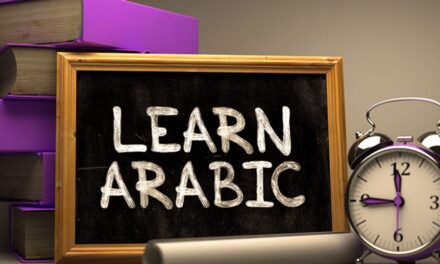Muslims have produced a countless number of scholars throughout history. Most of them are revered, and still live through their works. While we have not been able to preserve all their the works, the few books that remain talk a lot about the magnificence of our Muslim scholars in areas of theology, law, polemics, logic, psychology, philosophy and physical sciences. But to our dismay, we do not study our own legacy.
Anyway!
Some scholars devoted their time and efforts to one single subject, others mastered a number of them, while a few mastered just about anything known to be of academic value in Islam such the Imams of the four famous Madahib – Schools of Thought. These four imams are called ‘Mujtahideen al Mutlaq’, or in essence, absolute jurists. They knew the Quraan and Sunnah well enough to frame their own critical methodologies in understanding the revelation.
Since technology was not developed and information could not be transferred from one part of the world to the other, only a few schools of thoughts lived, while a lot had actually emerged. That was because, it was possible for a certain academic methodology to travel only a limited distance owing to the geography and political situation around. Whether these schools are restricted to the well known four, or are more in number is not the point of our discussion. What we are trying to emphasize in this post is that the Ummah accepted these four schools with an overwhelming acceptance.
In the past, everyone started his journey to understanding Islam through the course of one of these four Madahib. Some students could not progress much, while others progressed to a level where they were deemed to be Mujtahideen within these Madahib (Mujtahid fil Madhab). And there were a select few who progressed further and could judge between the rulings offered by all these four madahib, and other rulings from the scholars who were lesser known.
No printing press, no internet. You see!
Information travelled via the words of men and written papers. The emergence of schools of thoughts, which are in essence methodologies in understanding the Quraan and Sunnah was not particularly a bad thing. It was good! And since these schools were geographic in nature, we see the concentration of the followers of these Madahib distinct. Development for sure was also due to the political influence of the scholars of these Madahib. And even then, it is particularly not a bad thing, unless sectarian strife and hate occurs due to these Madahib, which unfortunately did occur.
Basically, every school developed a curriculum or a framework within which a scholar/student would critically think and develop his own conclusions. These schools further developed with master scholars getting nurtured within their frameworks. They worked on the curriculum of these madhhaib and wrote books, and encoded research frameworks.
The encasement of research frameworks was particularly good, as it helped in keeping orthodoxy intact. Otherwise with an open-ended methodology, which even if fallacious, people would come and get away with giving rulings that were completely in contrast to the intent of this religion.
Yes, knowledge can be manipulated according to the whims of the researcher. And this is true to any form of knowledge. There is nothing more dangerous than knowledge in the hands of a malacious researcher.
With time, these schools became ridged, especially with a decrease in trustworthiness of their scholars. Civil wars, hatred and confusion occurred. People of one school considered those from the other to be out of the fold of Islam. People had turned extreme. A revolution was needed!
In came a series of scholars who spoke against the malpractices of these wicked people of knowledge. They asked people to be more accepting, and turn their focus on the actual teachings of the Quraan and the Sunnah. While they first addressed the scholars and admonished them, and quite rightly, things changed afterwards. A debate between scholars emerged. Were we to follow the Madhab in its entirety, or are we allowed to leave one opinion of a madhab in favor of another opinion from a different, if it seemed that the evidence matched the latter?
Soon the discourse was pushed down to the laymen. Just to let you know, in Islam, people generally have to ask a scholar, when they do not know about an issue. That’s the Quranic command.
But the one who is to be asked should be a scholar in the subject. And now, we have another problem at our hands. The scholars who were nurtured upon a sound academic methodology would stick to the rulings of their Madhabs even if it was completely in opposition with the evidence. The researchers that had excelled were only a handful in number.
Closed minded religious scholars would not accept any error that came from their school. This was due to Ta’assub ie. bias towards ones own Madhab or teachers. But printing had started, information was flowing freely. Books were getting imported, and the errors of rulings of certain schools were getting exposed, especially when it became clear that a certain narration had not reached the scholars that Madhab.
Why would we follow the madhab in opposition of the evidence? A group of scholars asked. And thus began the clash. There was a shortage of bona-fide scholars who could research and answer people. It resulted in non-scholars sitting in the seats of scholars and giving verdicts. This obviously led to confusion and chaos. Especially, in absence of a critical research methodology things became distasteful. Random rulings from older books, that were consider to be odd and unorthodox began to be popularized.
This issue grew further when in order to increase their numbers, scholars wrote books where they tried to give a logical and juristic explanation for their judgments to the common masses. What would it lead to but polarization?
And today, we see the fruits of just that!
What we learn?
A great deal of confusion can be saved, if a Muslim starts learning his religion just as his predecessors learnt it. But with an open mind and a longing heart. A major phenomenon in this day and age is when a student learns his religion from the books that are actually for scholars but are wrongfully put into public discourse. Especially, through translations.
These books obviously do not help a person to develop a deep understanding of Islam and keeps the reader tied to the opinions of the writer. This also leads to wild fanaticism.
With the classical framework a student starts with understanding an issue, and grasping the reasons behind the development of certain verdicts. The research framework that he follows, gives his mind a path to traverse, a practical pathway to critical analysis. Simpler books are followed by more complex ones.
This gradualism helps a person to get ready to face the challenging questions that he would encounter in life. He will be equipped to find an answer, even if there is no precedence to the issue. And with time, a person develops a deeper understanding of Islam.
Whatever be the school of thought opted, a bona-fide study methodology is important. A curriculum to follow in Aqeedah, Fiqh, Hadeeth, Usool, Mustalah, Tafseer etc is critical. A body of scholars which has undergone the same curriculum is important to help you to understand issues that are difficult or seemingly difficult.
If we won’t do this, the waters are too deep to swim. With every wave, you will be lead into a direction that is farther from the goal. ie. worshipping Allah with knowledge.
If you would like to buy some awesome dry fruits from Kashmir, go to www.kashmirica.com







Recent Comments